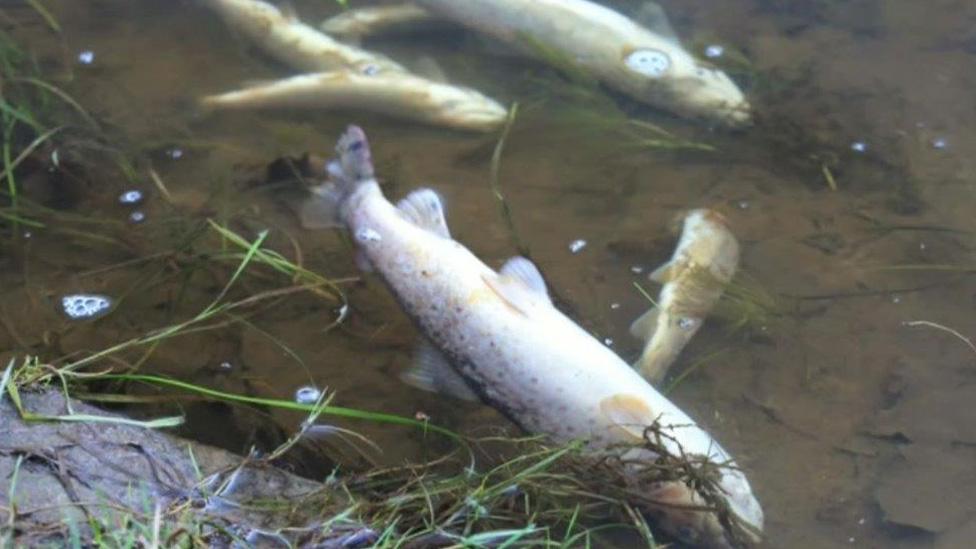New slurry rules in Wales delayed after outcry
- Published
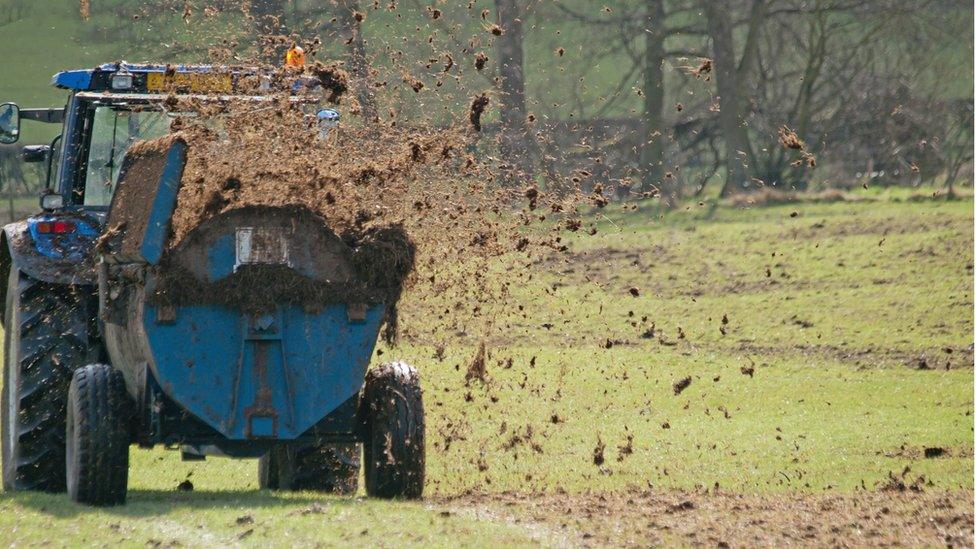
The new rules could restrict muck-spreading from mid-October to the beginning of February
Plans to introduce new regulations for storing and spreading slurry have been delayed by the Welsh Government after an outcry from farming unions.
The measures, designed to help prevent agricultural pollution, were due to be brought in from the start of 2020.
Environment Minister Lesley Griffiths said she would consider further advice from officials in January.
It comes after farmers said there was a "staggering lack of detail" over the rules last month.
The new rules could include preventing Welsh farms from spreading slurry on their fields between October and February to reduce the risk of it being washed into rivers and streams in the rain.
One farmer told Ms Griffiths the move would spell "disaster" and predicted that slurry leaking into waterways would rise, while others claimed they will have to spend hundreds of thousands of pounds to upgrade slurry stores.
NFU Cymru's president John Davies said it had presented Ms Griffiths with more than 100 pages of evidence supporting its claim that the move was "unjustified and disproportionate".
Slurry is a mixture of manure and water and is used by farmers as a natural fertiliser for crops. When washed into rivers it removes oxygen from the water, killing fish.
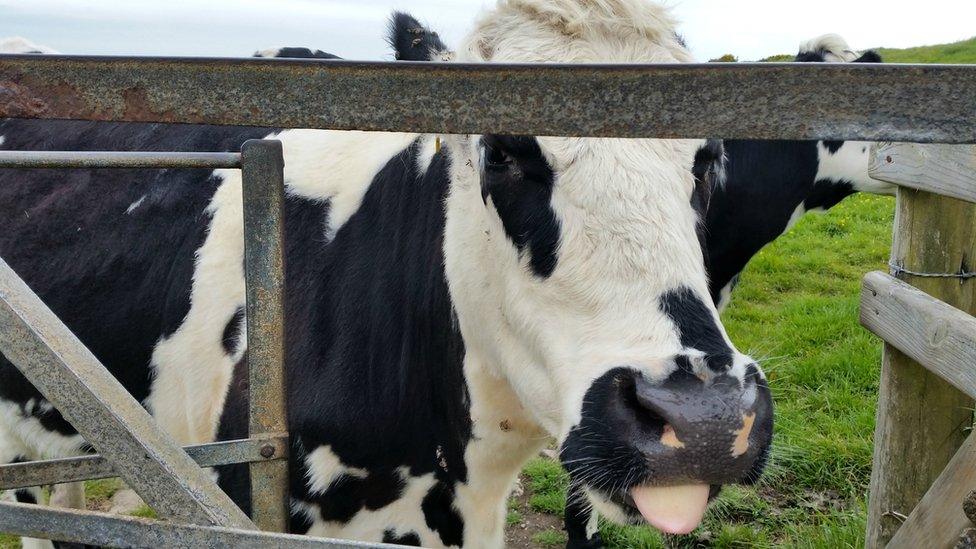
Ms Griffiths said she wanted to explore options "with the flexibility to achieve these essential environmental outcomes in a way that is best suited to individual businesses".
"It is vital farmers urgently recognise the scale of the problem in Wales and use this opportunity to engage in developing alternative solutions," she added.
Stephen Marsh Smith, chief executive of Afonydd Cymru, which represents Wales' rivers trusts, said: "This is devastating news for the environment of Wales and everyone concerned with clean rivers."
Wildlife Trusts Wales said: "We cannot afford to delay vital regulations to halt agricultural pollution."
- Published7 November 2019

- Published14 November 2018
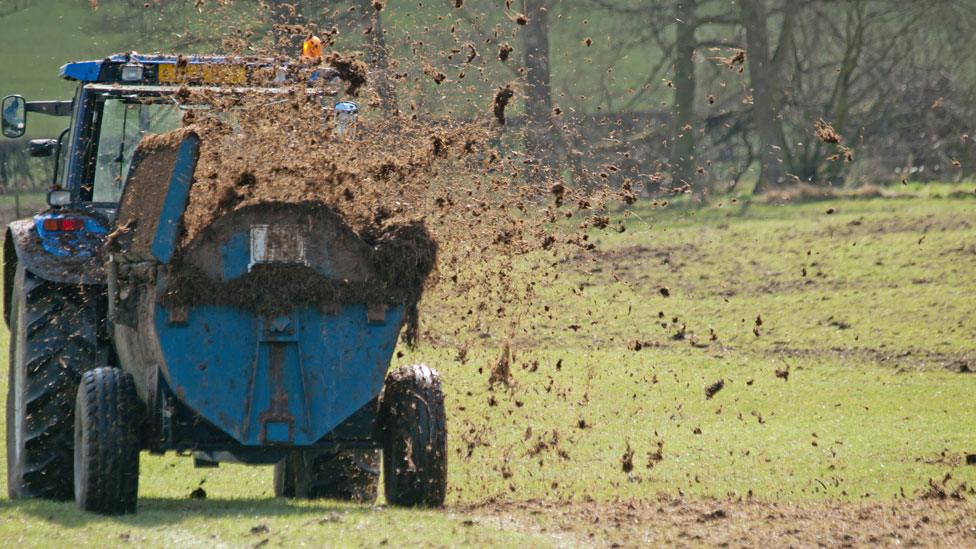
- Published7 August 2019
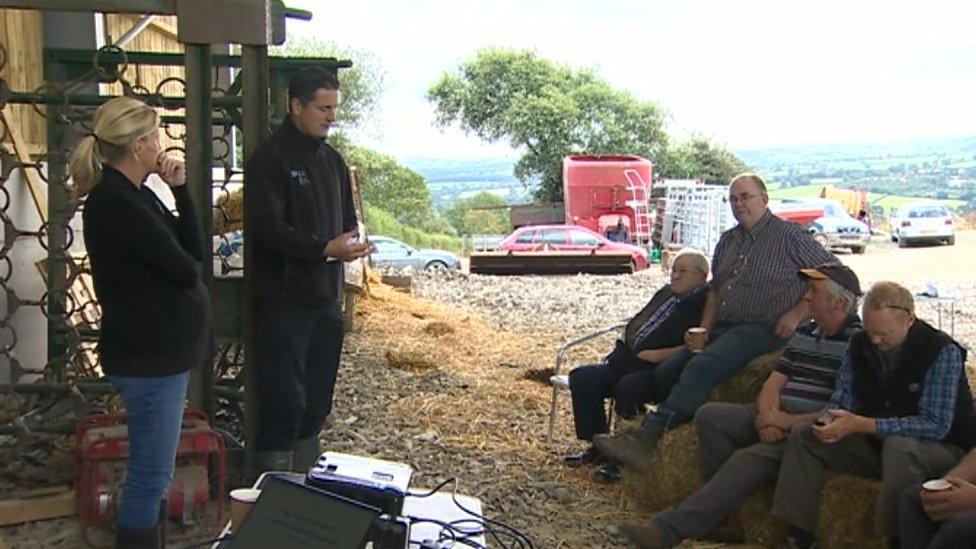
- Published15 March 2018
